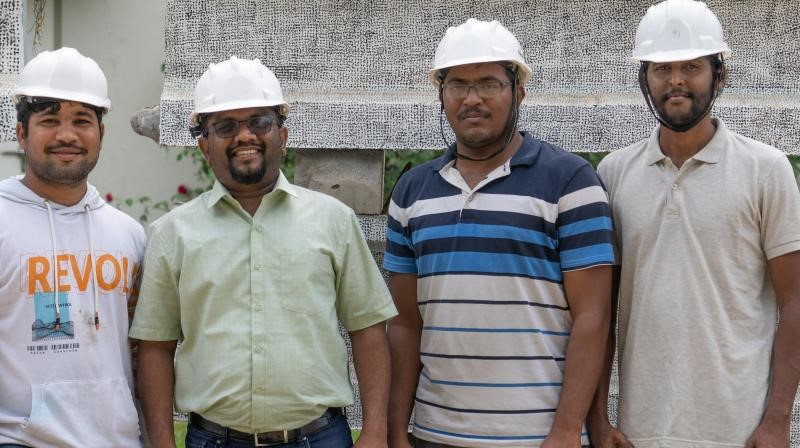There have been many recent research studies on UHPFRC properties and in the development of design procedures. It is a new material, with unique properties (high ductility, low permeability, very high strength capacity in compression, and higher toughness) in comparison to conventional concrete. The inclusion of steel fibers gives this concrete greater ductility in both tension and bending. It differs from high-performance concrete (HPC) in that it can dispense with conventional reinforcement and has compressive strength. It is important to know both material and mechanical properties to fully take advantage of its outstanding properties for structural applications. In this regard, researchers at the Indian Institute of Technology, Hyderabad have developed an affordable special Ultra-High Performance Fiber Reinforced Concrete (UHPFRC) using locally available materials like cement, fly-ash, river sand, ground granulated blast furnace slag, micro-silica, water, steel fiber, polypropylene fibers and high range water reducing agents (HRWRA). The composition combines the features of self-consolidating concrete, fibre-reinforced concrete, and high-performance concrete.
A team led by S Suriya Prakash, CASTCON Lab (Department of Civil Engineering, IIT-H) has developed the product. The cost of UHPFRC developed at IITH is about two times cheaper than commercially available proprietary products“UHPFRC mix can be used in a variety of applications, such as bridges, long-span structural beams, columns, and in off-shore structures where durability is a major concern,” he said. The overall cost of UHPFRC girders in bridge applications can be further reduced by providing a minimum web-shear reinforcement of 0.6 percent and a hybrid fibre volume dosage of about 1.0 percent, he further explained.

Features of UHPFRC:
- The composition combines the best features of self-consolidating concrete (SCC), fibre-reinforced concrete (FRC), and high-performance concrete (HPC).
- UHPFRC developed at IITH for pre-stressing applications, yields a cube compressive strength of 150 MPa and a direct tensile strength of 8.0 MPa. Several full-scale post-tensioned UHPFRC concrete bridge girders were tested to understand the shear behaviour.
- The cost of UHPFRC is made affordable by optimising the fibre dosage and replacing costly fine aggregates with cheaper, locally available ones, such as fly-ash, river sand, and steel.
“Several full-scale bridge girders made of UHPFRC were tested. Our test results have given deeper insights into the shear behaviour of prestressed bridge girders, which will be used to develop design guidelines for practising engineers. Our research is expected to increase the confidence in using UHPFRC in India’s various infrastructure applications”, Prof Suriya Prakash said.
He and his team have extensively worked on various industry-relevant research work and developing innovative solutions, including the use of Glass FRP rebars, lightweight precast concrete panels, Carbon FRP based strengthening solutions sand Ultra-High-Performance Fibre Reinforced Concrete (UHPFRC) for infrastructure applications. On the occasion, Director, IITH, Prof B S Murty, said, “Strong and durable infrastructure is a must for holistic development of any nation, complimenting Professor Suriya and his team on the finding. Developing construction materials with improved strength using locally available raw materials is a creditable stride towards realizing our dream of Aatma Nirbhar Bharat. I am sure such innovation will not only benefit local development in terms of economic and efficient infrastructure but extend its advantage to the infrastructure sector globally.





